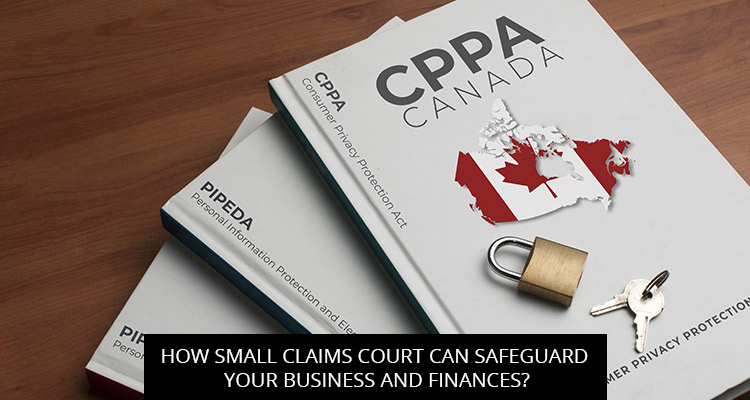
As a dedicated private contractor, you have delivered construction services to your client within the agreed time frame. However, your client has chosen to withhold payment, leaving you searching for effective remedies. In such challenging circumstances, the Small Claims Court will be the most appropriate and efficient avenue to recover your money you rightfully deserve.
As a business owner, landlord, property owner or a contractor, you may get to face a number of disputes which can cost you a lot. Therefore, you must not forget about Small Claims Court which is less formal and a cost-effective way of solving your disputes as compared to the traditional method of litigation.
What’s The Monetary Limit For Small Claims Court?
In Ontario, there is a Small Claims Court which solely deals with civil claims pertaining to money. Before going to Small Claims Court for your dispute, it is essential to note that Small Claims Court doesn’t entertain financial matters valued above $35,000. All your monetary claims related to civil disputes of up to $35,000 or less can be dealt in Small Claims Court.
What Matters Can Be Heard In Small Claims Court?
Small Claims Court can hear a wide range of matters such as payments pertaining to contracts or agreements, any debts or loans, claims related to any property damage, personal injury claims, landlord tenant disputes, rent disputes, compensation to be paid due to breach of contract, etc.
Do I Need A Lawyer To Represent My Claim?
The simple answer is No. You do not need a lawyer. This is the most standout feature of this legal recourse. One of the major reasons people opt to get their issues resolved through Small Claims Court is due to the concept of self-representation.
It may be beneficial for those who are not familiar with the legal court procedures. You can represent yourself in Small Claims Court but that does not mean that you do not have the option to hire a legal representative.
Process Of Filing At Small Claims Court
Firstly, you need to file your claim or complaint. It can be done online as well.
After the Plaintiff has filed the claim, the Defendant must be served with the Plaintiff’s Claim. The serving of Plaintiff’s claim is proved by an Affidavit of Service pursuant to Rule 8.06 of the Rules of the Small Claims Court, O. Reg. 258/98.
Under rule 9.01 of the Rules, the Defendant is required to respond to the Plaintiff’s claim within 20 days of the notice being served. Rule 9.02 outlines that a Defendant is required to communicate clear reasons why the Plaintiff’s claim should not proceed any further.
As per Rule 10 of the Rules of Small Claims Court, if the Defendant finds themselves in a situation where they believe they have a legitimate claim against the Plaintiff or even another party, arising from the very same transaction or occurrence that the Plaintiff relies upon, they hold the right to a Defendant’s Claim.
Within a timeframe of 20 days following the filing of the Defence with the court, the Defendant can take action by initiating a Defendant’s Claim. This legal mechanism allows both parties to present their cases, counterclaims, and evidence, ensuring that all relevant issues are addressed comprehensively.
Settlement Conferences
Settlement conferences play a pivotal role in making the dispute journey seamless as compared to full-scale trials. Once a claim is filed by an individual, under rule 13 of Rules of the Small Claims Court, it is mandatory that a settlement conference is scheduled in order to streamline the process and encourage settlement options, potentially saving time and costs associated with a full trial.
Attendance of an individual or his/her legal representative is mandatory, otherwise the court can impose sanctions in case of failure to attend the settlement conference as per rule 13.02(5)(a) of the Small Claims Court Rules. Additionally, Rule 14 of the Small Claims Court Rules also permits a party to initiate an offer of settlement to the other party.
If the matter does not get resolved through a settlement conference, then the trial phase commences and notice of trial is served to the parties. When the trial is concluded, the parties do retain the option file an appeal against the final order of Small Claims Court.
Contact The Lawyers At Ayaz Mehdi Professional Corporation!
By pursuing your claim through Small Claims Court, you can increase your chances of efficiently recovering your money. Let the professional team of civil litigation lawyers at Ayaz Mehdi Professional Corporation help you with your claim. Don’t hesitate to reach out!
Disclaimer: Kindly note that sending or receiving information through this site does not establish a solicitor-client relationship. Legal matters are fact-specific, and the law is variably changing. The views expressed and the content provided on this blog are general guidelines and cannot substitute for proper legal advice. Schedule your legal consultation by clicking here: Let’s meet!






